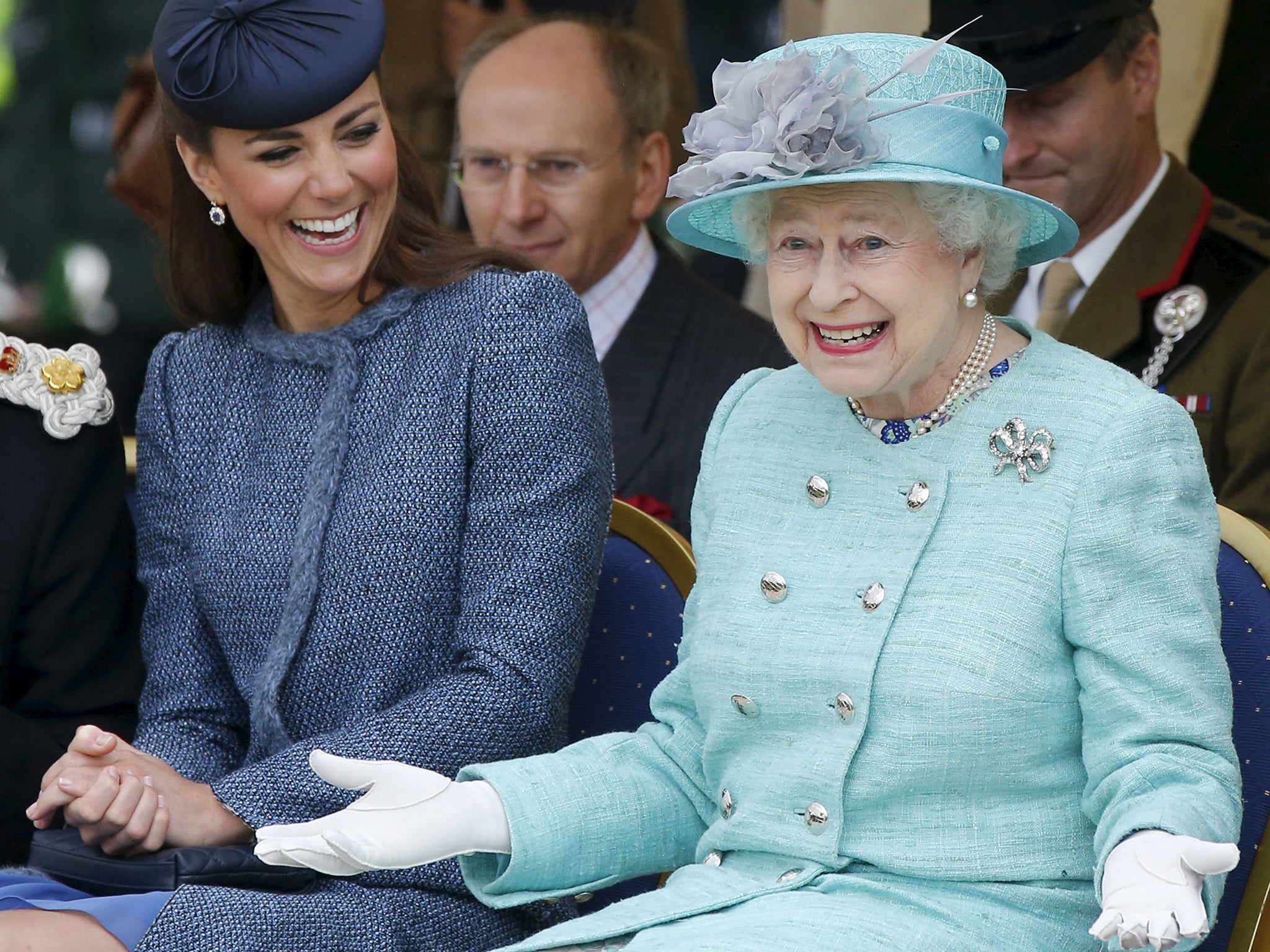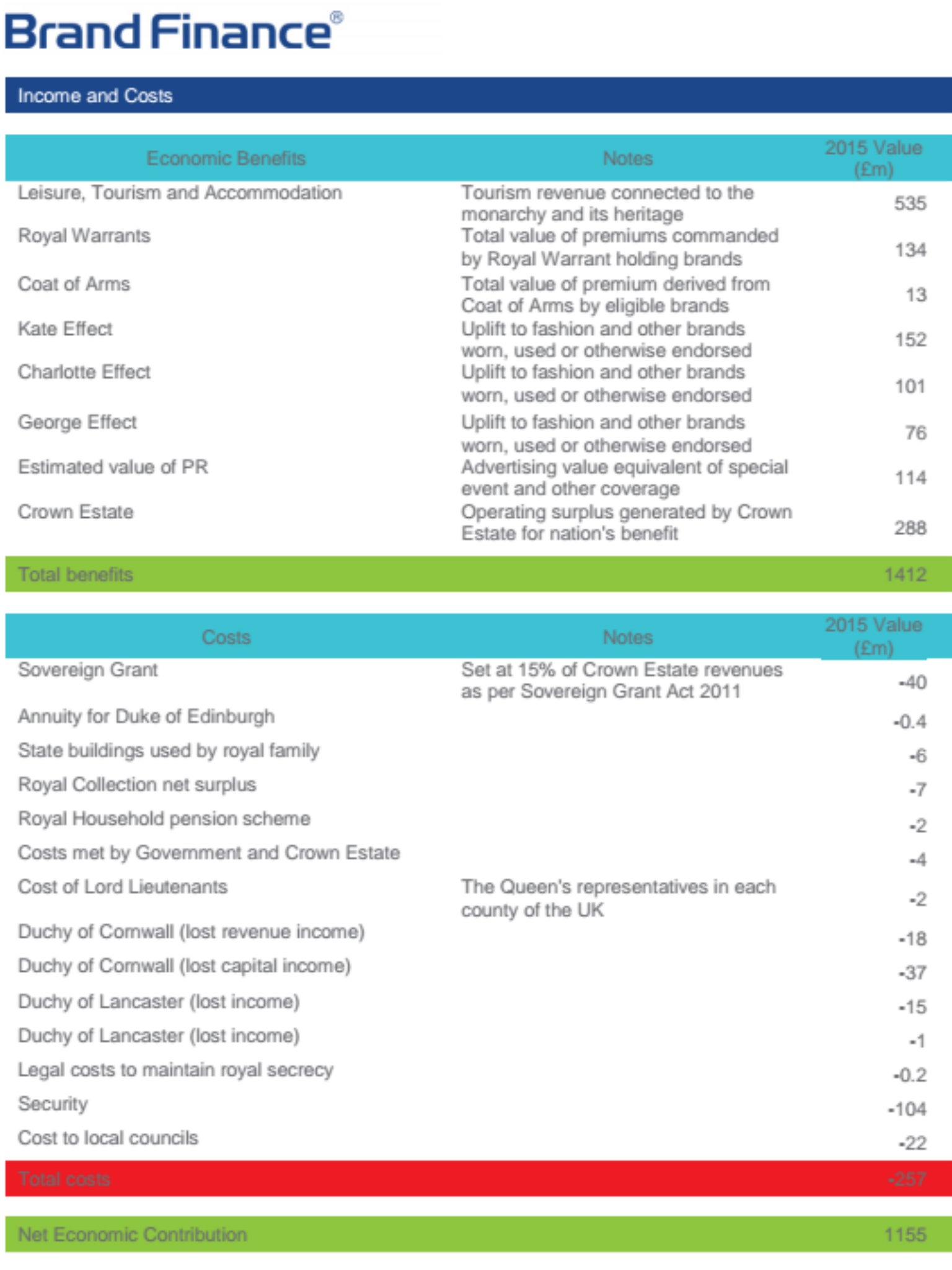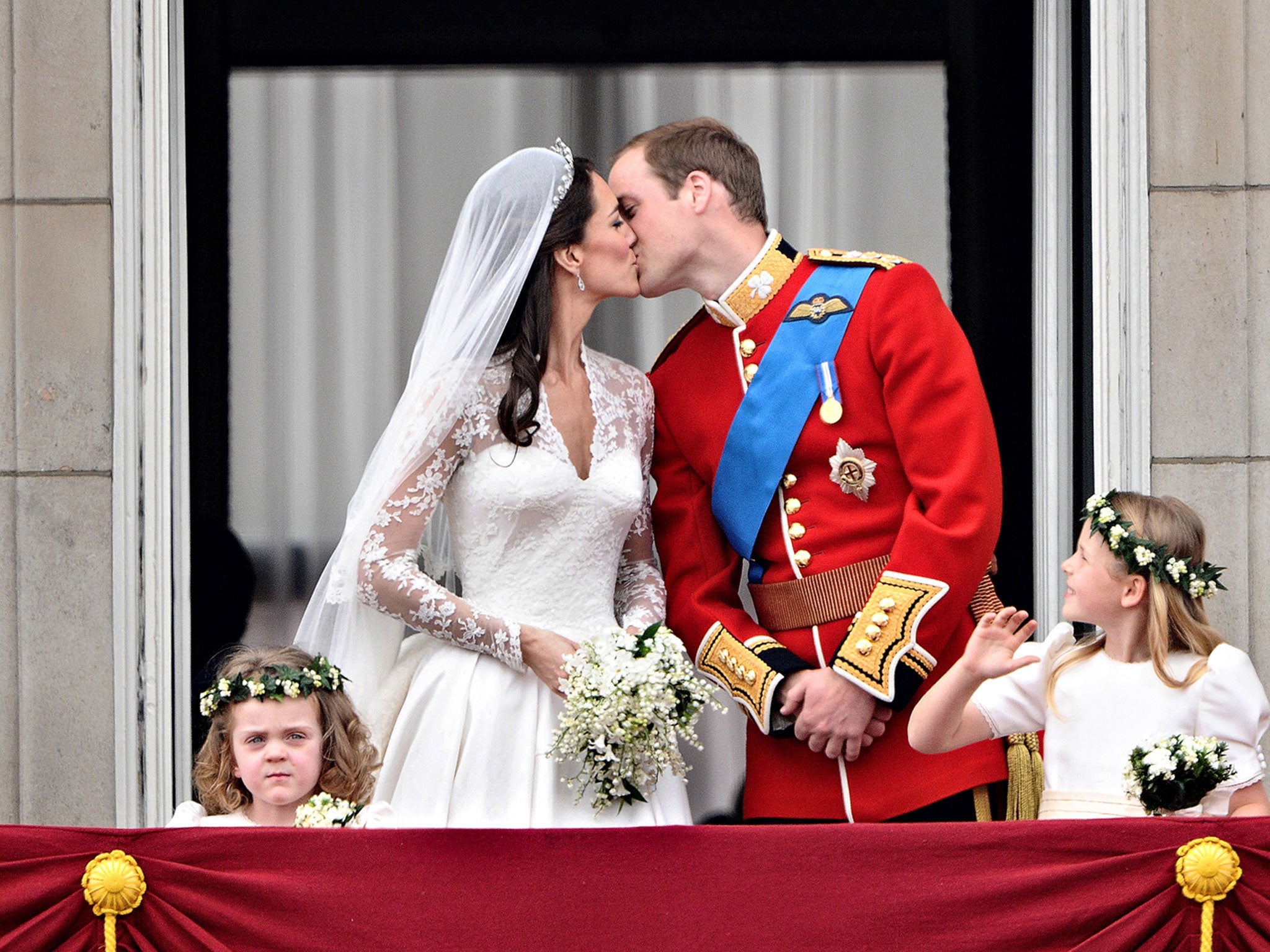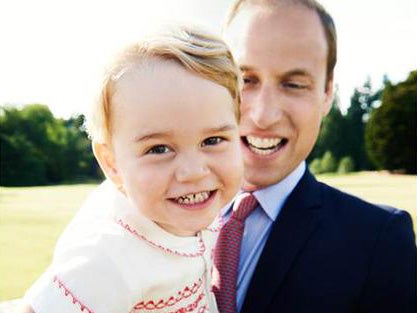The biggest myth about the Queen? Her contribution to the British economy
Recent research valued the Monarchy’s latest contribution to the economy at £1.155bn, but counter-research claims the Royals cost the tax payer £344m

As the Queen reaches a new milestone of becoming the UK’s longest reigning monarch, the question of her worth to Britain’s economy has once again been raised.
According to fresh research by Brand Finance, the value of the monarchy has been placed at an estimated £56.7 billion. This figure includes the value of tangible assets such as the Crown Estate, the Duchies of Cornwall and Lancaster and the Crown Jewels.
When these tangible assets are stripped out, the total value of the monarchy to the UK’s economy is an estimated £1.155 billion for 2015, according to their research.
This figure has been calculated by netting off costs such as the Sovereign Grant, the millions spent on security and the maintenance of the palaces against sources of income such as the surplus generated by the Crown Estate, the uplift in tourism and the price premium from brands carrying Royal Warrants.

However, Brand Finance attributes £152 million in income to the “Kate Effect”, which is described as an “uplift to fashion and other brands worn, used or otherwise endorsed”. Similarly £101 million is attributed to the “Charlotte Effect” and £76 million to the “George Effect,” while a total of £114 million has been calculated as the “Estimated value of PR”. Brand Finance has not yet responded to how these figures were estimated from total sales.
Supporters of the monarchy and its value to the UK often use the example of tourism as an area where the Royals haul in money. Brand Finance’s calculations show that tourism revenue connected to the monarchy and its heritage has been valued at £535 million for 2015.

But the UK’s tourism body VisitBritain states that while international tourism is Britain’s third largest service export, with inbound tourism to Britain worth £26.2 billion, only some of that figure can be attributed to attractions and events with a connection to British monarchs and heritage. These are sites such as the Tower of London, Buckingham Palace and Westminster Abbey, where the Duke and Duchess of Cambridge were married, though no exact figure can be gauged of the contribution of the royals on tourism revenues.
“While having a royal family gets us an enormous amount of global coverage and free advertising for Britain across the world - which is invaluable - it’s not something we can give give an exact economic figure for,” said Patricia Yates, director of strategy and communications at VisitBritain.

Campaign group Republic, which calls for the abolition of the monarchy, claims that it’s own research shows the monarchy costs the UK £334 million a year, with each “working royal” costing the taxpayer £18.5 million a piece.
Republic rejects the inclusion of surplus from the Crown Estate as a source of revenue as it is a property investment vehicle managed, not owned, by the Queen during her reign as monarch on behalf of the nation.
It instead claims that costs from a number of sources including the Sovereign Grant, costs to local councils, costs from security and losses incurred by the private estates of the Duchies of Lancaster and Cornwall amount to £333.9 million.
“There isn’t any evidence to suggest there is any economic benefit to the royal family,” Republic chief executive Graham Smith said.
“Any benefit mentioned is from assets that belong to the nation - like tourist attractions - which would still belong to the nation if the monarchy was abolished.”
Join our commenting forum
Join thought-provoking conversations, follow other Independent readers and see their replies
Comments
Bookmark popover
Removed from bookmarks